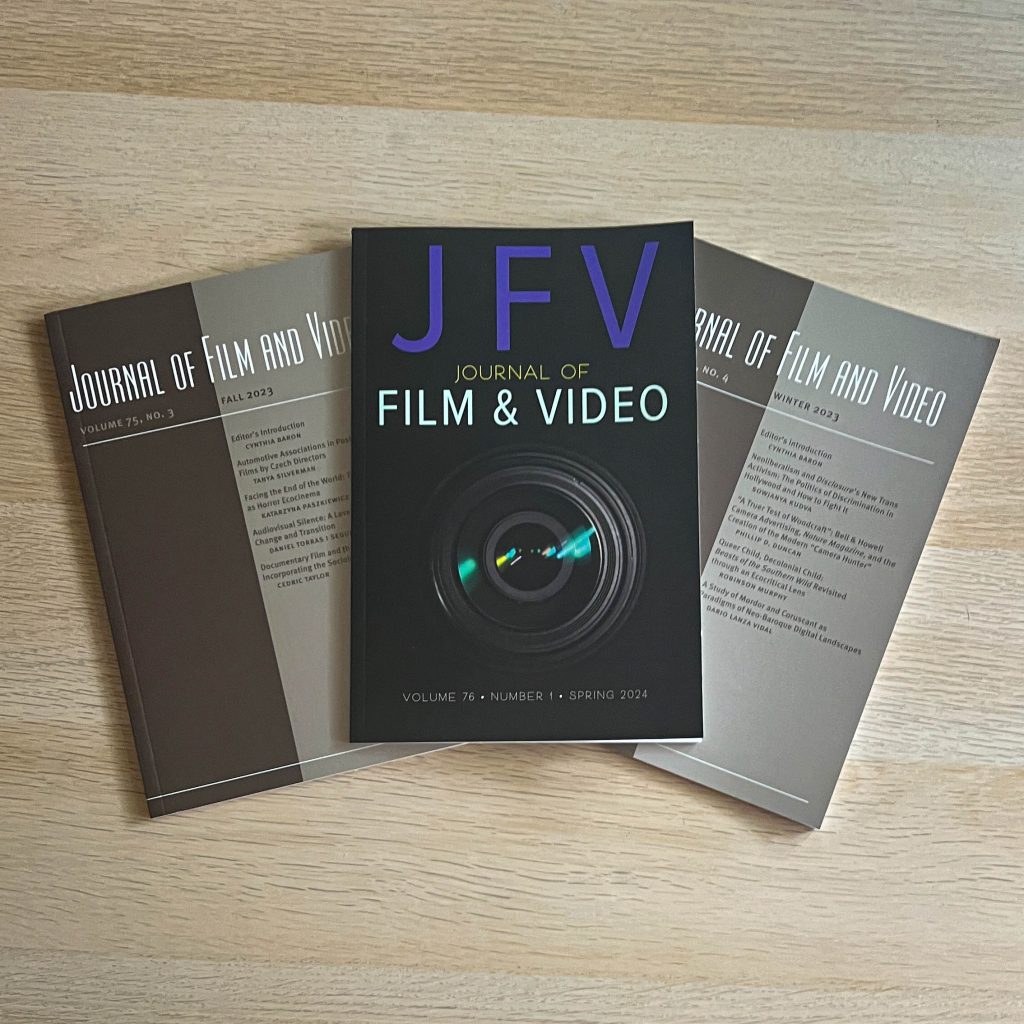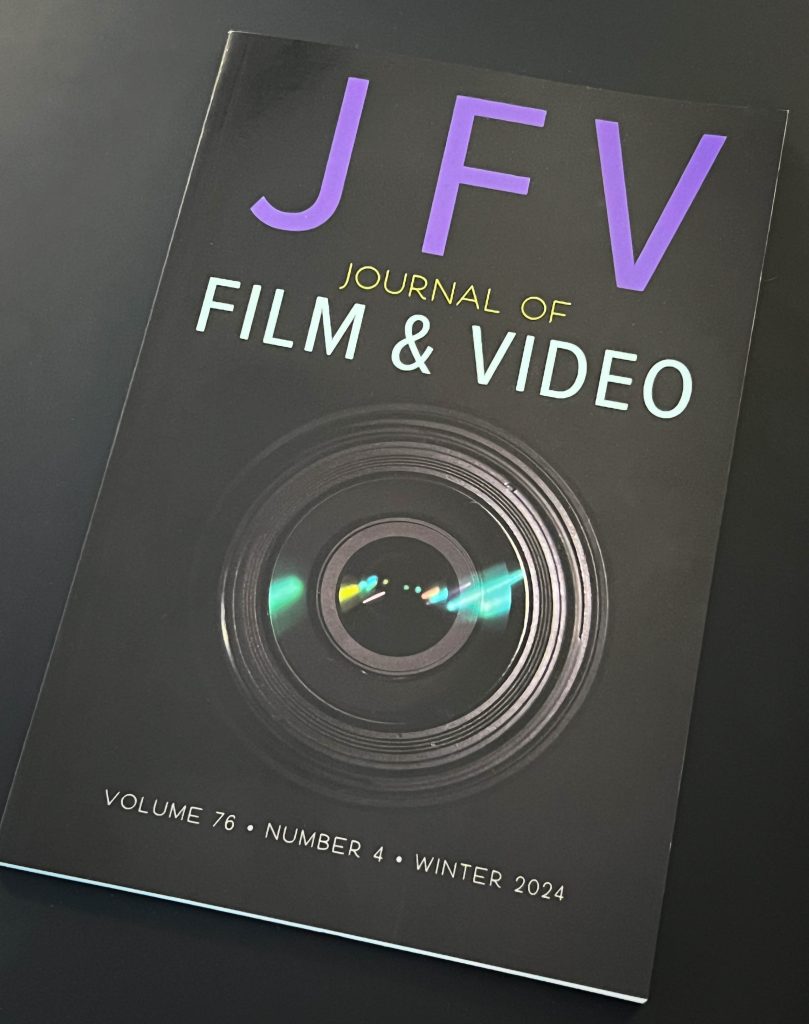Calling all film scholars! Back by popular demand, Journal of Film and Video, the official journal of the University of Film & Video Association, is releasing a reading list of essential recent scholarship on film, video, and media production—temporarily free to access throughout the year. Edited by Cynthia Baron, JFV is a double-blind, peer-reviewed journal published four times a year.
Read more about the articles below and mark your calendars to be sure you take advantage of the free to access periods.
“Pitch Decks, Project Development, and Creative Labor for Contemporary Hollywood TV Series” by Kimberly A. Owczarski (Vol. 76, Iss. 3)
Free to access from July 1, 2025, to September 30, 2025
As visual proposals, pitch decks have been central to capital raising in start-up businesses for decades. It is only in the era of intense streaming competition that the pitch deck has emerged as a crucial feature in Hollywood’s development phase. In both cases, however, the costs of producing professional pitch decks are the burden of those seeking funding. The use of pitch decks is at the core of the issues highlighted in the 2023 WGA strike about development in the streaming era. As such, they provide an ideal site to discuss the ramifications of new business models on how TV series are currently developed and produced.
“Ethics in Documentary Film Production: Asserting and Changing Norms” by Patricia Aufderheide (Vol. 76, Iss. 1)
Free to access from October 1, 2025, to December 31, 2025
To shed light on practitioners’ challenges and concerns, this article describes the assertion of new norms in ethics for documentary filmmaking in the United States between 2014 and 2022. It is executed within the theoretical framework of cultural studies, in particular the work of analyzing cultural production both as subject to wider sociopolitical-economic forces and as part of the process of reshaping culture. In this article, Aufderheide looks at industry practices, political context, economic incentives, and social movements to explain the rise of different proposals to change ethics norms in US documentary filmmaking and to assess their future.
“Neoliberalism and Disclosure‘s New Trans Activism: The Politics of Discrimination in Hollywood and How to Fight It” by Sowjanya Kudva (Vol. 75, Iss. 4)
Free to access from January 1, 2026, to March 31, 2026
With an examination of the historical forces that quashed many civil rights battles in Hollywood, this article recounts how entertainment business leaders partnered with political elites to deliberately install and sustain a neoliberal agenda in the movie industry over the last fifty years. This agenda reformulated already entrenched discrimination with its new logics of anti–affirmative action rhetoric, media deregulation, and free-market ideology.
“Facing the End of the World: Take Shelter as Horror Ecocinema” by Katarzyna Paszkiewicz (Vol. 75, Iss. 3)
Free to access from April 1, 2026, to June 30, 2026
Paszkiewicz’s central argument is that the Jeff Nichols’s film Take Shelter (2011) can be understood as “horror ecocinema,” bringing together both the scholarship on ecocinema and horror studies. While at first glance Take Shelter would seem to elude simple classification as an eco-film or a horror film, this essay shows how it compellingly addresses pressing ecological issues through a heavy reliance on cinematic affect and fear narratives commonly explored in the horror genre. Paszkiewicz reads Take Shelter through horror eco-aesthetics to shift the focus from spectacular disasters to the process of noticing the unseen: the complex entanglements of humans and the more-than-human realm of the weather.

Find Out More
- Read our blog post introducing editor Cynthia Baron.
- Looking for more recommendations? Check out last year’s JFV reading list! The articles are no longer free to access, but JFV subscribers can still enjoy them!
- Individual subscriptions can be made through the University of Illinois Press website.
- To recommend this title to your library, fill out this Library Request Form.
- Ready to see your work featured in Journal of Film and Video? Submit original scholarly work here.
- You may also enjoy Music and the Moving Image, a triannual journal that explores the relationship between music and the entire universe of moving images (film, television, music videos, computer games, performance art, and web-based media) through articles, reviews, and interviews.

